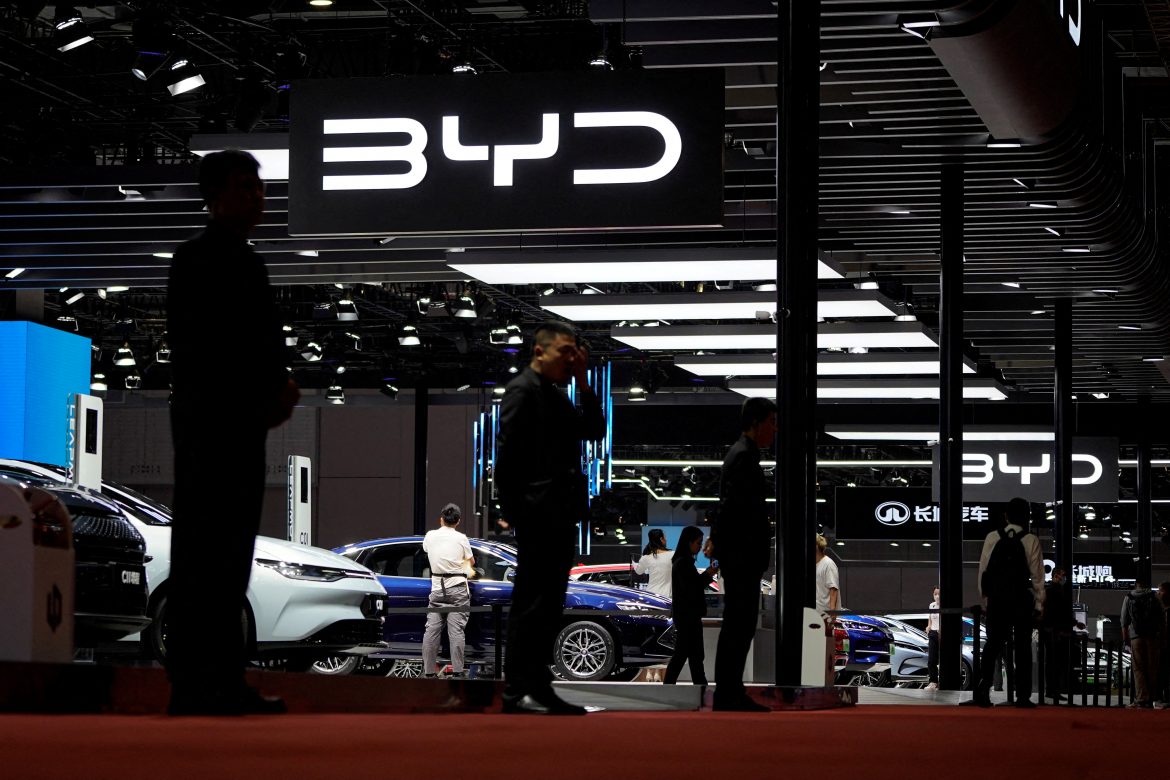In the wake of the European Commission’s proposal to impose tariffs of up to 38.1% on electric vehicle (EV) imports from China, two of the country’s leading EV manufacturers, BYD and SAIC’s subsidiary MG, are carefully weighing their options regarding potential price adjustments in the European market. According to sources close to both companies, no definitive decisions have been made as of yet, with the firms adopting a wait-and-see approach until the provisional duties come into effect on July 4.
This cautious stance contrasts with the swift action taken by Tesla, which has already announced plans to increase prices on its Model 3 to offset the impact of the new tariffs. The electric vehicle industry is closely watching how other manufacturers will respond to these trade tensions, with analysts anticipating that companies producing in China will likely pass on at least a portion of the additional costs to consumers.
The proposed tariffs represent a significant challenge for Chinese EV makers seeking to expand their presence in the European market. MG, in particular, faces a substantial 38.1% tariff on top of the existing 10% duty, while BYD is subject to a 17.4% tariff increase. These additional costs could potentially erode the competitive pricing advantage that Chinese EVs have enjoyed in Europe, forcing manufacturers to reassess their market strategies.
The European Commission’s decision to impose these tariffs has further strained trade relations between the EU and China, with Beijing expressing strong opposition to the move. This development marks a new low in economic ties between the two powers and raises concerns about potential retaliatory measures from China, the world’s second-largest economy.
Interestingly, it’s not only Chinese manufacturers grappling with this issue. Dacia, Renault’s low-cost brand, which imports its electric Spring model from China, is also facing uncertainty. A spokeswoman for the company stated that an announcement regarding price adjustments was “not on the agenda” at present, despite the fact that the Spring will be subject to a 21% duty under the new tariff regime.
The reluctance of BYD, MG, and Dacia to make immediate pricing decisions reflects the complex nature of the situation. These companies must carefully balance multiple factors, including maintaining market competitiveness, preserving profit margins, and considering potential long-term impacts on their European market share. Additionally, they may be exploring alternative strategies such as increasing localisation of production or seeking exemptions from the tariffs.
As the July 4 deadline approaches, industry observers and consumers alike are keenly awaiting the responses from these major players in the EV market. Their decisions could have far-reaching implications for the affordability and accessibility of electric vehicles in Europe, potentially influencing the pace of EV adoption across the continent.
Moreover, this situation highlights the broader challenges facing the global automotive industry as it navigates the transition to electric mobility amidst evolving trade policies and geopolitical tensions. The outcome of these pricing decisions could serve as a bellwether for future trends in the international EV market, shaping strategies for both manufacturers and policymakers in the years to come.



